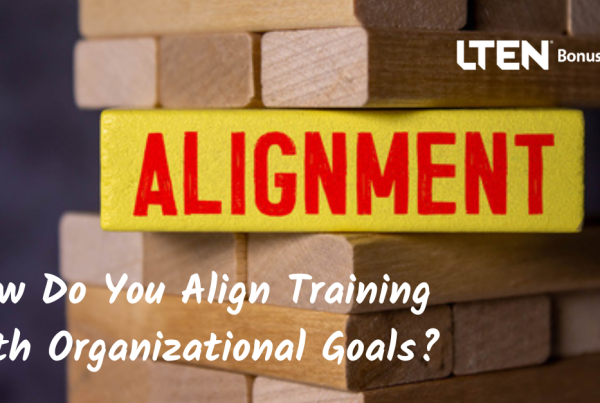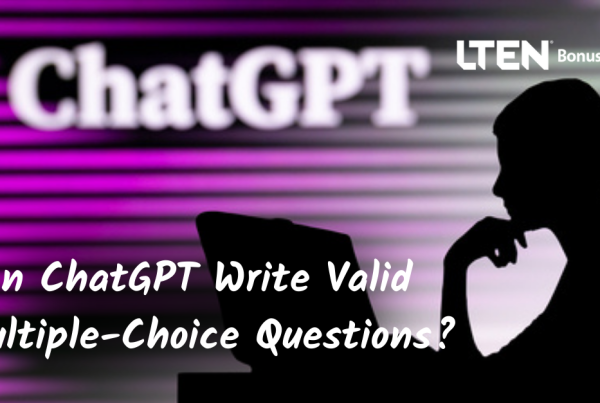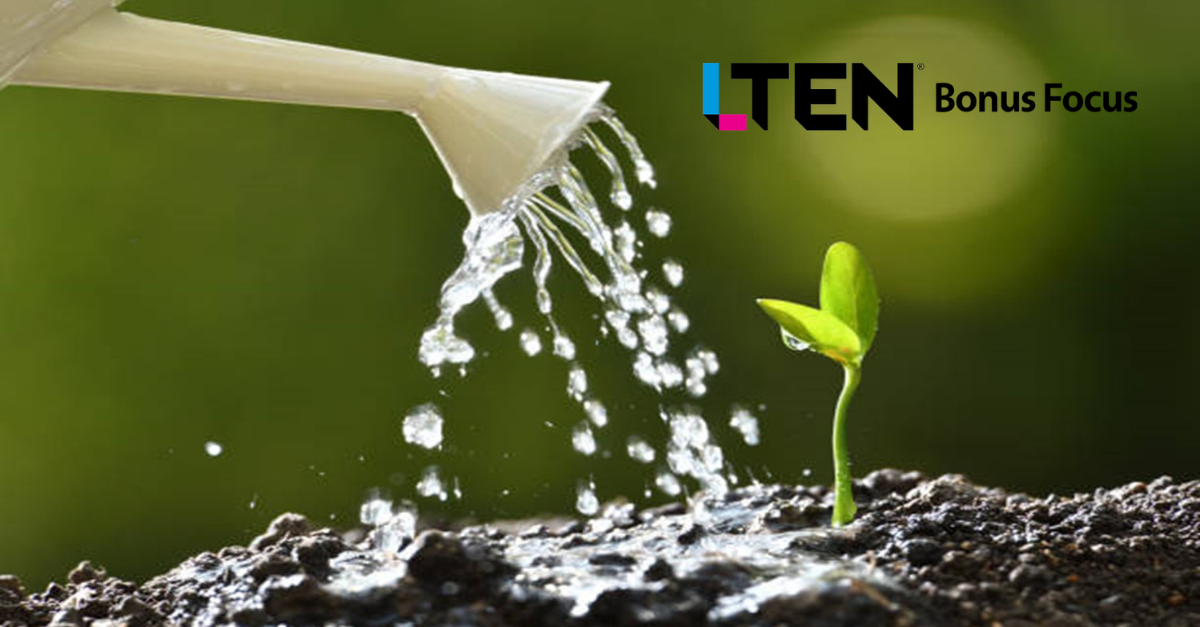
By Chris Platanos
As training leaders, we not only facilitate training and development initiatives to help our team members positively impact patients, but we also directly impact our teams’ overall experience. This experience incorporates stakeholder alignment, adult learning principles, impactful workshops (live and virtual) and various pull-through initiatives. To facilitate at our highest level, our overall wellness is at the forefront now more than ever before.
This article was written to share some impactful wellness practices/resources that many of us have found valuable in their journeys. As you read, I would encourage you to take a moment to pause and reflect on ways you can bring wellness to the forefront of your journey, ways that will ultimately enhance your impact with your team.
Enjoy!
Introduction
Wellness has been an area of focus of mine from an early age. I thought it might be helpful to provide a little background on my wellness journey and why I am sharing this article today.
Throughout my life, I witnessed my mother’s continuous struggle with obesity and my father’s mental illness of manic depression. On Feb 18, 2021, my mom passed away due to years of health complications. These experiences, along with the global pandemic, have allowed me to explore wellness in greater depth and inspired me to share my journey with my family, friends, and colleagues.
As the global pandemic is subsiding in many areas of the world, we are now faced with the “new normal” of work. Although our experience is individualized based on our situation, our work and our current wellness habits, I am often surprised to learn we share several commonalities about wellness when speaking to friends and colleagues.
No matter where you are on your wellness journey, my hope is that this article provides you the space to reflect, increases awareness of key concepts, and to implement something meaningful that will positively impact your wellness today.
The Wellness Journey
Recent global events have forced many of us to pause and reassess what is truly important. This includes the blending of our personal and professional lives moving from a work-life balance to a life-work balance mindset.
The importance of our wellness is paramount and companies who proactively implement meaningful wellness programming to support their employees will be at a competitive advantage. Employees will respond in kind and these companies will be talent magnets in this new paradigm of wellness. Although wellness is individualized, there has been an incredible amount of research around how to enhance our overall wellness with some commonly shared principles.
This article shares what I have experienced from my wellness journey, what I have learned from others and it is summarized into three core areas. Whether you are just beginning your wellness journey, or it has been an area of focus for some time, the goal of this article is to take a moment to reflect and to implement one or two items that will enhance your wellness today.
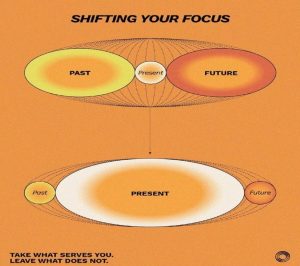
Present Moment Awareness
Whatever we focus our attention on is what will grow and expand in our lives.
This core area is simple and is often overlooked but has a profound impact of how we experience life. We generally view life linearly with our past, our present and our future. When we experience feelings of regret or guilt, it is due to our focus being placed on past events which becomes our personal story or narrative. When we experience feelings of stress or anxiety, our focus is often placed in the future.
Reflecting on our past experiences and having future goals can be helpful, but when our attention is constantly going from past events (our narrative) to what “might” happen in the future, this creates a feedback loop that takes our focus away from the present moment. The present moment is the only place where our life unfolds.
Although this is a straightforward concept, gaining awareness of our past and future feedback loops directly impacts our wellness. How do we make the shift to focusing on the present moment? Eckhart Tolle’s pivotal book, The Power of Now, provides an extremely insightful review.
Our ability to focus on the present moment directly impacts the degree of peace and wellness we experience. Reflect on some of your most joyous moments in your life. What do each of these moments have in common? You were fully present and engaged in the moment as it unfolded.
There are several ways to bring us in to the present moment, including practicing silence or meditation, conscious breathing, inner body awareness, journaling gratitude, walking in nature, etc. Giving our full attention to this moment also requires us to accept this moment as it is.
Life has been unfolding for over 13 billion years and will continue to do so. Moving with the “flow” of life requires us to surrender, accept and work with the present moment.
If required and it is possible, take the appropriate action to change a situation. Anything in between causes us pain and suffering. Working with “what is” versus what you feel “should be” fre
es us from the pain and suffering we experience.
This article only touches the surface of this important concept, and it is foundational to how we experience life. When we focus and accept the present moment exactly how it is, there is renewed appreciation of the “small” things that might have been previously overlooked that energizes our well-being. This continued focus on the present moment continues to expand becoming our default, versus our past or future feedback loop described above.
A Quick Example
Do you know someone who complains continuously? To complain is always nonacceptance of what is. Being here and wanting to be there.
This creates a negative feedback loop which unconsciously becomes the narrative of how one experiences life. This lack of appreciation of the present moment continues to expand in their lives leading to continuous complaining, reacting to situations that often negatively impacts the situation itself and their wellness.
On the contrary, do you know someone who exudes presence, positivity and gratitude? They engage each situation and appreciate it for what it is. Their present moment awareness allows them to interact and respond with intention that results in a positive interaction enhancing both the situation and their wellbeing.
One of Tolle’s numerous quotes that I found valuable on the topic: “If your mind carries a heavy burden of the past, you will experience more of the same. The past perpetuates itself thr
ough the lack of presence.”
Reflections:
- Where do I currently focus my attention?
- What is my relationship with the present moment?
- How can I intentionally move my attention from the past and future into the now?
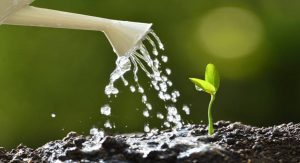
Create Daily Habits
Small Daily Actions + Time = Sustainable Change
We all know this to be true, don’t we? Although each of us has different responsibilities balancing life and work, we all have 24 hours each day.
Some powerful examples of incorporating small daily actions include improving 1% each day results in 37-fold improvement at the end of one year or reading 20 pages each day equals 30 books per year. There are many more examples that outline the importance of taking small, consistent steps over time that result in sustainable change.
We often place our self-care and wellness on the backburner for other areas in our life. A quick analogy. When we board an airplane preparing for a flight, the safety briefing instructs us to put our “oxygen mask on first” prior to helping others. Why? A prerequisite to serving others and showing up at our best is prioritizing our wellness because we cannot truly help someone else if we are not at our best.
We understand that prioritizing wellness is of upmost importance. This not only requires us to focus on wellness, but also to create daily habits that become a part of our wellness routine.
The power of a habit is that it becomes second nature. Think of a habit as the onramp to the freeway that we want to take. Over time our small, daily habits become our default and shape the quality of our lives.
We will review some of these wellness habits in our third focus area, but a quick overview of habits might be valuable.
Overview
James Clear outlines some key principles on habits in his book, Atomic Habits. This book provides an excellent, detailed overview of how habits are created using some practical examples.
One useful tip Clear outlines is the use of “habit stacking.” This entails taking an existing habit that is already a part of your daily routine and stacking a new habit right after it.
An example is upon awakening, you drink some water followed by a cup of coffee, your current habit. Right after you drink your water/coffee habit, you could stack a new wellness habit such as journaling gratitude, meditation/stillness, etc. Over time this new habit is incorporated into your daily routine, it becomes what you do.
A second useful tip is the use of implementation intentions. Turning your intention of wellness into action is critical. The more specific we make our implementation intention in writing them down, the higher likelihood that we will follow through.
An example of an implementation intention is, I will (INSERT BEHAVIOR) at (TIME) in (LOCATION).
Lastly, a simple yet effective way to turn your intention into action is using a “trigger,” such as writing it on a sticky note and placing it in a visible location, like on top of a coffee maker, laptop or cell phone. You will be amazed at how effective the use of a simple trigger can be especially when developing a new habit.
Reflections
- What are my current wellness habits?
- What is a current habit that I could “habit stack” a new habit?
- What implementation intention and/or trigger could I utilize to enhance my wellness?
Morning Wellness Routine
How we start each day impacts our wellness more than we appreciate.
Do you have a morning routine? Whether you answer yes or no to this question, the answer is that we all have a morning routine.
Before we discuss this important area, lets address the “pink elephant” in the room: “I am not a morning person!”
If you identify yourself (your narrative) as “not a morning person,” then you will never be. Some great news, you do not have to be a “morning person” to have an intentional morning routine.
In the second core focus area, we discussed the importance of creating daily habits. A critical time of the day is the first 30-60 minutes upon awakening. Why? It sets our intention and the lens that we experience each situation throughout the day.
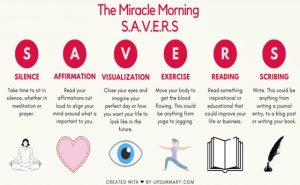
The Miracle Morning, by Hal Elrod, outlines a morning routine that combines six power practices into an acronym, S.A.V.E.R.S (Silence, Affirmations, Visualizations, Exercise, Reading, Scribing). The concept is that by doing any one of these practices each day positively impacts your overall wellness, but when combining them into a morning routine, it starts your day with intention, focus and energy that impacts how you experience the day.
These practices, or any combination, can be done in a short time frame of 10 or 15 minutes, which represents approximately 1% of your total day.
The beautiful and powerful concept of having an intentional morning routine is that it can be adapted to whatever serves you using aspect(s) of S.A.V.E.R.S or other wellness practices. There might be some of these practices that are current daily habits that serve your wellness. There might be some of these practices that you have never explored, tried or are not a part of your current morning routine. Wherever you are is a perfect starting point to enhance your wellness journey!
To share a personal example, one of the core practices that I have found extremely powerful is starting my day with silence with my breath, then scribing (journaling) three things that I am grateful for each morning. I must admit that I was a bit skeptical when starting this practice as I previously did not identify as someone who meditates or journals. This was my previous narrative, which did not allow me to fully realize the power of stillness/silence/meditating (choose the term that serves you), journaling and gratitude.
After practicing this for few weeks, I discovered this morning routine positively impacted how I experienced my day. There was to be a lightness and renewed energy in my interactions with my family, friends and colleagues. As situations unfolded throughout the day, my ability to respond with a positive mindset was enhanced.
Practicing silence and gratitude each morning does two important things. It brings our focus to the present moment and it enhances our ability to appreciate this moment exactly how it is working with the flow of life.
Reflections
- What does my daily morning routine look like?
- Which morning habits are helpful, what habits might not be helpful? (Possibly starting the day on email, text or social media, etc.)
- What impact will enhancing my wellness have on my health, family, career, etc.?
Conclusion
Focusing on the present moment, creating daily habits and implementing an intentional morning routine enhances our wellness and creates a ripple effect that is far greater than we will ever know. In summary, here are 3 suggested next steps:
- Take a moment to review and journal your reflections with some additional depth.
- Identify what small, specific action(s) you will focus on over the next 30 days to enhance your wellness.
- Share your intention with a family member, friend or colleague.
I’m grateful for your attention in taking the time to read this article, along with my incredible colleagues, who provided their valuable feedback in writing it. Please drop me a note with your reflections, feedback, and if there anything else that would be helpful in supporting your wellness journey.
Enjoy each moment!
Chris Platanos is director, global commercial training, for Alnylam Pharmaceuticals. Email Chris at cplatanos@alnylam.com.






